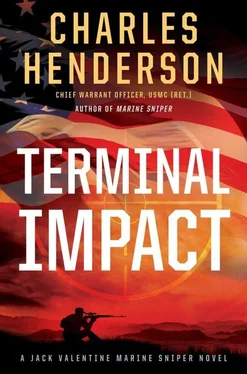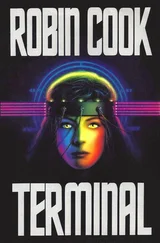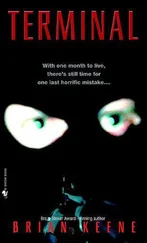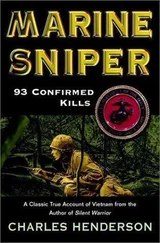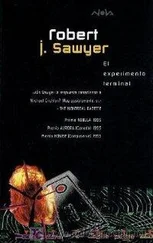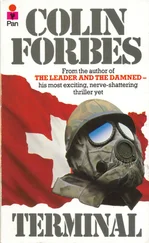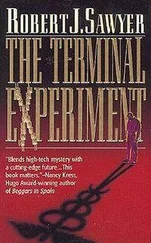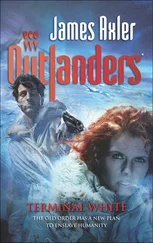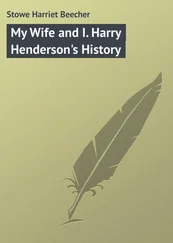“Nice,” Cochise Quinlan said, as Valentine’s shot with the .338 Lapua Magnum chambered M40A3 bolt rifle lifted the man off the bike and put him in a series of cartwheels while the motorcycle tumbled end over end like a tin can.
All eight of the snipers had an angle on the man, but the gunny shot first, since the gunman crossed Jack’s lane first.
“How do you feel about that shot?” Cotton Martin asked on the intercom.
“Something ain’t right, you know?” Jack said.
“Roger that,” Martin answered. “Like he’s bait.”
“Want we should slide out there and check him out?” Bronco asked, wanting to help.
“No,” Jack said. “Let him lie. Everyone stay quiet and put your heads on swivels. If this guy is some kind of bait, they’ll jiggle the fishing line.”
* * *
Juba and Hasan lay hidden among rocks on a small rise in the desert, and watched the young volunteer ride the motorcycle as fast as he could make it travel across the empty landscape, racing it eastward. They waited as the rider shrank smaller and smaller, until they could only see the plume of dust behind his bike.
Then came the echoing report of the heavy rifle, a throaty boom that rolled across the desert, telling anyone with the understanding of such things that a sniper had just made a kill. The dust stopped, and they waited, now looking through their American military field glasses, trying to spot movement.
No one had told the young lad that he was bait. An attempt to draw out the snipers, or at least approximate their location. Abu Omar had given the kid from Amman, Jordan, who had ridden his Honda motorcycle overnight to join the jihad of Jamaat Ansar al-Sunnah with so many other enthused young men of late, a canvas dispatch case filled with meaningless papers. He told him to ride as fast as he could to Haqlaniyah, and to cut across country, away from the roads, so that the advancing Americans would not see him.
With a worn-out Russian AK rifle strapped across his back, and one magazine with six rounds of ammunition, Omar sent the boy flying.
“A very important dispatch to our brothers in the south,” the old graybeard had told the boy, giving him the traditional hug and kiss on both cheeks. Then cried out as the boy rode away, “ Allahu Akbar , God is great!”
The boy raised his fist high in resolve as he drove away, his rear tire chewing through the dirt, sending a brown plume skyward.
First he rode south a mile, then turned eastward and twisted the throttle full open, his AK rifle riding sideways across his back and the canvas pouch tied against his chest.
Juba and Hasan watched him make his turn toward the east and waited, watching to locate exactly where along the ridge above the shallow wadi the American snipers hid. The two jihadi snipers had all but given up when Jack finally took the one shot and killed the boy.
“Much farther to the east than we had estimated from their operation plan,” Dzhamal Umarov told Khasan Shishani, watching through the field glasses and seeing nothing.
“What shall we do now?” Hasan responded, speaking in their native Chechen dialect of the Nakho-Dagestanian tongue of their Caucasian homeland.
Speaking in their language of birth made both men feel free. Around the Iraqis, as Juba and Hasan, they had to use a pigeon mix of French and Arabic. In Baghdad, as business partners from Avignon, Davet Taché and Jean René Decoux had to speak English with graceful southern French accents.
“The body and the wrecked motorcycle gives us an approximation,” Dzhamal explained, pondering the situation. As a skilled sniper, he knew that the Marines would not needlessly expose themselves to kick around and check the pockets of a dead victim. They would wait and see who comes looking for the rider.
He scanned the horizon from his left to his right and pondered some more. Then he looked again at the small rise of the land that followed the dry streambed that extended to the east.
“Do you see, Khasan,” Umarov said, pointing at the subtle rise in the landscape. “That little ridge follows the wadi miles and miles to the river. That is where our Marines wait to see who comes to collect the dead.”
“May we now go home to Baghdad?” Shishani asked, hopeful. “We are days late on our return.”
Dzhamal smiled at his partner, who had stood with him through thick and thin, through the demise of the Soviet Union, who as a very young man had helped him build a successful business in France.
“We can do no one further good here, and certainly not if we are killed in a senseless battle, wasting a thousand good lives just to rave at our enemy,” he said, still smiling. “Yes, it is time we return to Baghdad, or at least back to the Tigris, where people expect to see us.”
“When?” Khasan Shishani asked, hopeful.
“We will make our report and go at once,” Umarov said. “When Abu Omar and his army stir the bees, their stings will follow with severity. We do not want to be here when the bees swarm. While they fight, and provide a diversion, we will go north with Brother Zarqawi and cross back to Baiji while the enemy busies himself here.”
* * *
“Dude, it’s been two hours,” Bronco Starr complained on his MICH helmet’s hands-free headset.
“Patience,” Jack answered.
“If anyone was coming, they’d have come by now, boss,” Cochise piled on. “Seriously. Sometimes you draw a fold hand. No shame in it. We can pack up, move on, draw new cards. What you say?”
“You rolled the dice, Jack. Sometimes you get snake eyes,” Cotton agreed. “Not much shaking in these weeds. Maybe we should swing back toward the highway and the river, where more people live. Closer to the operation, maybe they’ll stir some business.”
“We stick it out, according to the op plan, until nightfall,” Jack said. “You heard that traffic running all night until daylight. If we move, I think we need to go in the direction of all that activity.”
“True,” Cotton said. “Nobody heading to see grandma at four in the morning. So let’s move west when it gets dark.”
“That’s a plan,” the gunny said.
“Fuck,” Bronco let out with a big breath. “I’m cooked in my own juice. And I need to take a shit. Do you mind?”
“Drop down in the wadi and let fly,” Jaws said. “Ain’t shit happening but your shit.”
“This really sucks, you know?” Bronco added while he slid to the rear and got in the wash, where he could squat.
“Suffer patiently and patiently suffer,” Sage said, reminding Bronco of one of their sniper-school ethos.
Bronco moaned, and Jaws laughed.
“Sage,” the corporal came back, “that’s right up there with one shot,one kill, and the deadliest thing on the battlefield is one well-aimed shot. Give me a break with the Hathcock bumper sticker bullshit. I need to concentrate on cutting this turd.”
“Suffer quietly and quietly suffer, Bronco,” Jack said.
* * *
Walter Gillespie had taken an admin run to Baghdad for Speedy Espinoza, departing on the return flight of the same Osprey that had brought out Chris Gray. The two intelligence field officers had set up shop with the First Battalion, Fifth Marines S2 section, working in concert with them on Operation Quick Strike Vengeance.
Hacksaw, Kermit Alexander, and Cory Webster had proven themselves valuable and trustworthy to Espinoza in the few days it took to unload the CIA boxes and plug in their computers. They acted like Marines, old Corps Marines. He quickly came to like them.
When Gillespie got to his apartment, a pile of mail and dirty magazines lay on the floor outside his door. He pushed it with his boot toe, then bent over and picked it up.
Читать дальше
